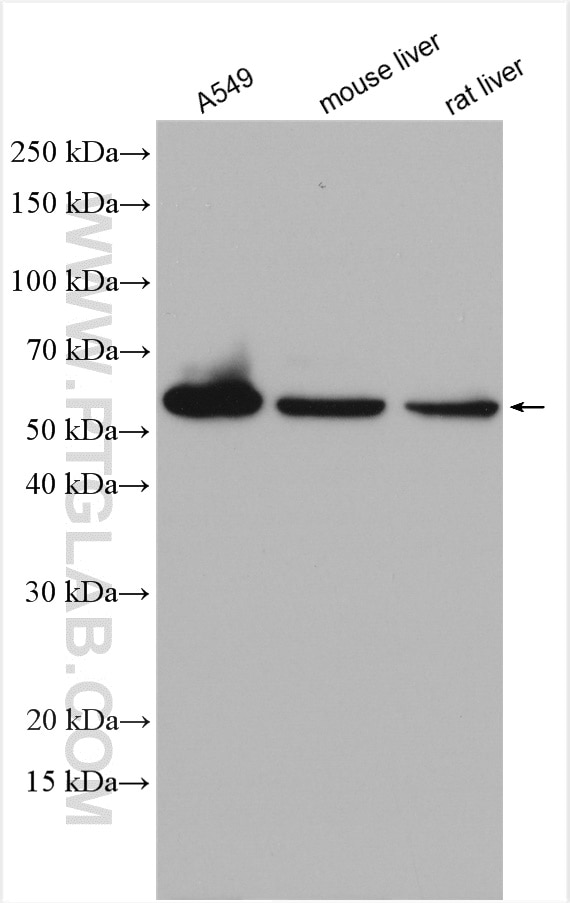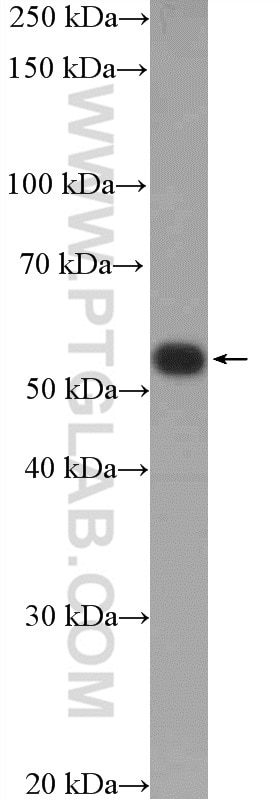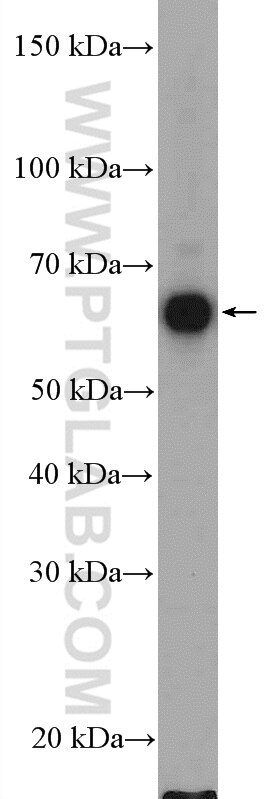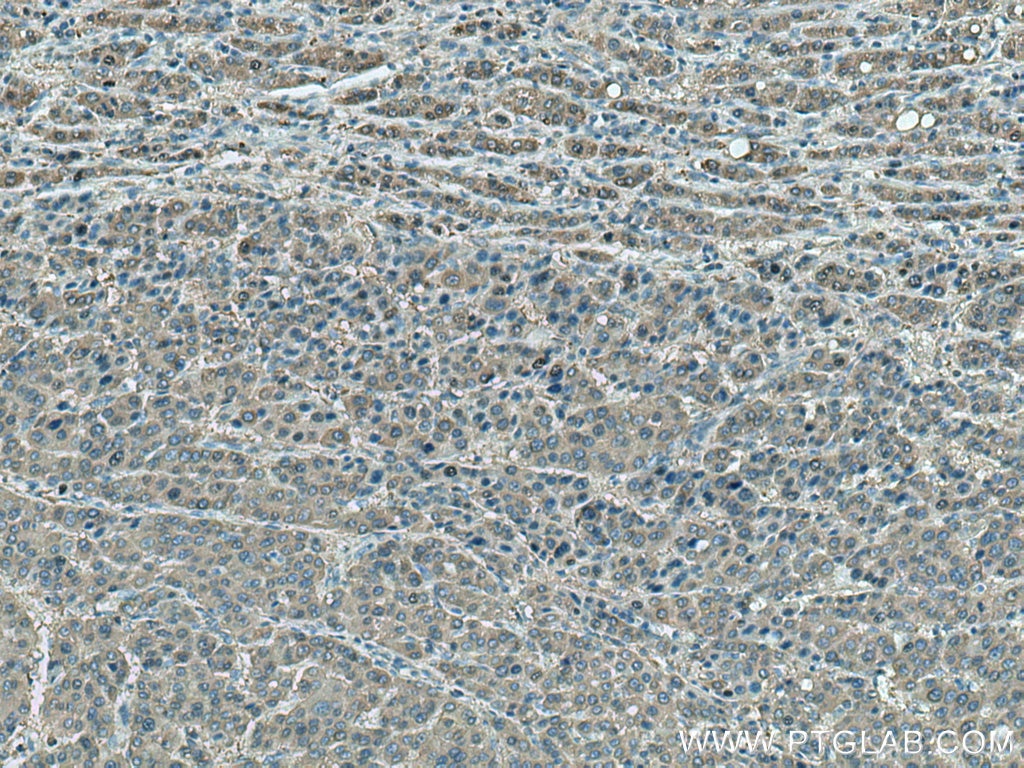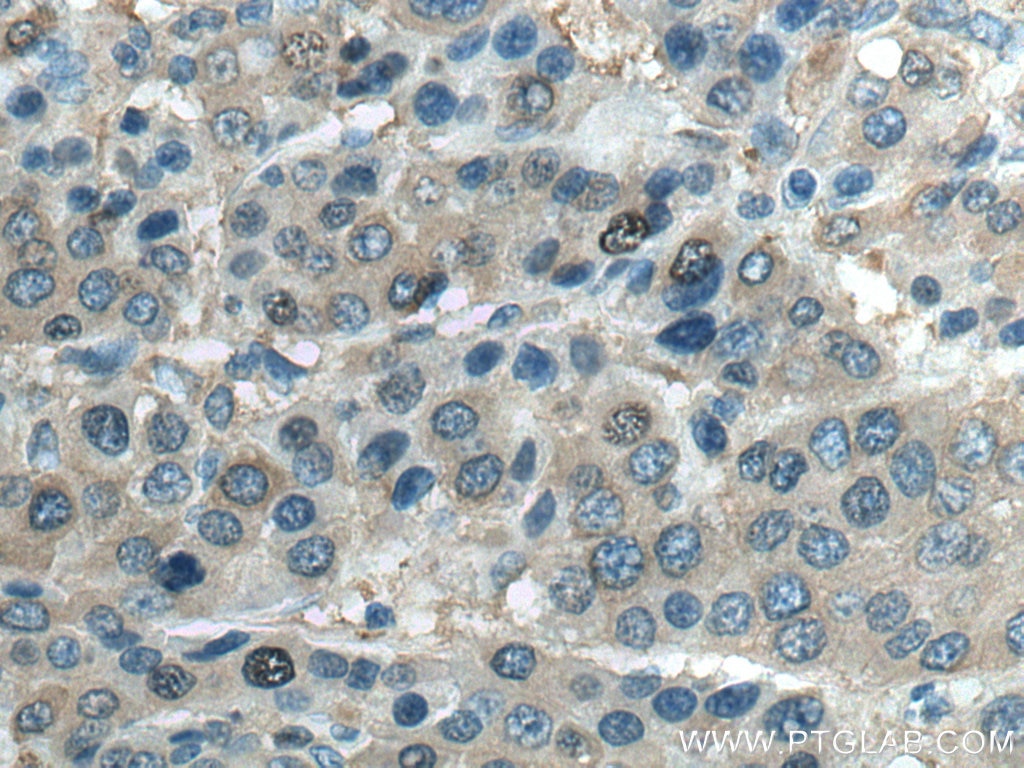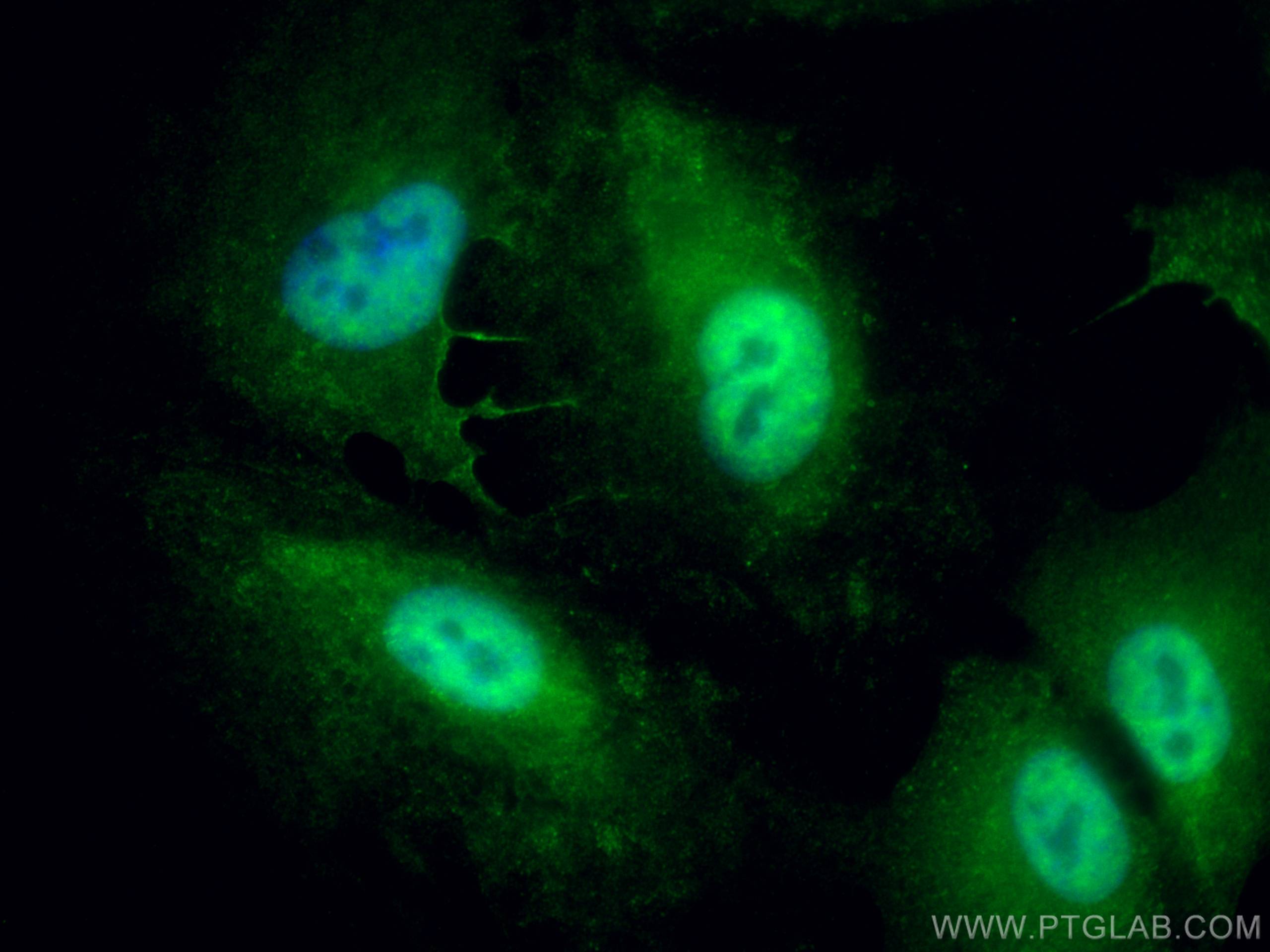- Phare
- Validé par KD/KO
Anticorps Polyclonal de lapin anti-UGDH
UGDH Polyclonal Antibody for WB, IHC, IF/ICC, ELISA
Hôte / Isotype
Lapin / IgG
Réactivité testée
Humain, rat, souris
Applications
WB, IHC, IF/ICC, ELISA
Conjugaison
Non conjugué
N° de cat : 13151-1-AP
Synonymes
Galerie de données de validation
Applications testées
| Résultats positifs en WB | cellules A549, cellules HepG2, tissu hépatique de rat, tissu hépatique de souris |
| Résultats positifs en IHC | tissu de cancer du foie humain, il est suggéré de démasquer l'antigène avec un tampon de TE buffer pH 9.0; (*) À défaut, 'le démasquage de l'antigène peut être 'effectué avec un tampon citrate pH 6,0. |
| Résultats positifs en IF/ICC | cellules A549, |
Dilution recommandée
| Application | Dilution |
|---|---|
| Western Blot (WB) | WB : 1:500-1:2000 |
| Immunohistochimie (IHC) | IHC : 1:50-1:500 |
| Immunofluorescence (IF)/ICC | IF/ICC : 1:50-1:500 |
| It is recommended that this reagent should be titrated in each testing system to obtain optimal results. | |
| Sample-dependent, check data in validation data gallery | |
Applications publiées
| KD/KO | See 2 publications below |
| WB | See 6 publications below |
| IHC | See 3 publications below |
Informations sur le produit
13151-1-AP cible UGDH dans les applications de WB, IHC, IF/ICC, ELISA et montre une réactivité avec des échantillons Humain, rat, souris
| Réactivité | Humain, rat, souris |
| Réactivité citée | Humain, souris |
| Hôte / Isotype | Lapin / IgG |
| Clonalité | Polyclonal |
| Type | Anticorps |
| Immunogène | UGDH Protéine recombinante Ag3767 |
| Nom complet | UDP-glucose dehydrogenase |
| Masse moléculaire calculée | 494 aa, 55 kDa |
| Poids moléculaire observé | 55-60 kDa |
| Numéro d’acquisition GenBank | BC022781 |
| Symbole du gène | UGDH |
| Identification du gène (NCBI) | 7358 |
| Conjugaison | Non conjugué |
| Forme | Liquide |
| Méthode de purification | Purification par affinité contre l'antigène |
| Tampon de stockage | PBS with 0.02% sodium azide and 50% glycerol |
| Conditions de stockage | Stocker à -20°C. Stable pendant un an après l'expédition. L'aliquotage n'est pas nécessaire pour le stockage à -20oC Les 20ul contiennent 0,1% de BSA. |
Informations générales
UDP-glucose 6-dehydrogenase (UGDH) is a key enzyme in the uronic acid pathway, and converts UDP-glucose (UDP-Glc) to UDP-glucuronic acid (UDP-GlcA). UGDH is critical to the production of extracellular matrix components which are essential to the migration and connectivity of neurons early in human brain development. UDP-GlcA is an essential sugar nucleotide precursor and a key component in the synthesis and stepwise degradation of glycosaminoglycans (GAGs). The protein subunit migrates on SDS-PAGE at ~55 kDa. (PMID: 32175296, PMID: 21576248, PMID: 31243371).
Protocole
| Product Specific Protocols | |
|---|---|
| WB protocol for UGDH antibody 13151-1-AP | Download protocol |
| IHC protocol for UGDH antibody 13151-1-AP | Download protocol |
| IF protocol for UGDH antibody 13151-1-AP | Download protocol |
| Standard Protocols | |
|---|---|
| Click here to view our Standard Protocols |
Publications
| Species | Application | Title |
|---|---|---|
Nature UDP-glucose accelerates SNAI1 mRNA decay and impairs lung cancer metastasis.
| ||
Arthritis Res Ther UDP-glucose dehydrogenase modulates proteoglycan synthesis in articular chondrocytes: its possible involvement and regulation in osteoarthritis.
| ||
PLoS One Quantitative proteomic analysis reveals that anti-cancer effects of selenium-binding protein 1 in vivo are associated with metabolic pathways. | ||
PLoS One Angelica Sinensis Polysaccharides Stimulated UDP-Sugar Synthase Genes through Promoting Gene Expression of IGF-1 and IGF1R in Chondrocytes: Promoting Anti-Osteoarthritic Activity. | ||
Nat Commun UDP-glucuronate metabolism controls RIPK1-driven liver damage in nonalcoholic steatohepatitis | ||
Arch Biochem Biophys UGDH promotes 5-fluorouracil resistance in colorectal cancer via the ROS-activated PI3K/AKT-EEF1A2-PRDX1 pathway |
Avis
The reviews below have been submitted by verified Proteintech customers who received an incentive for providing their feedback.
FH Tanusree (Verified Customer) (12-18-2019) | Product worked well in WB at 1:500 dilution
|
